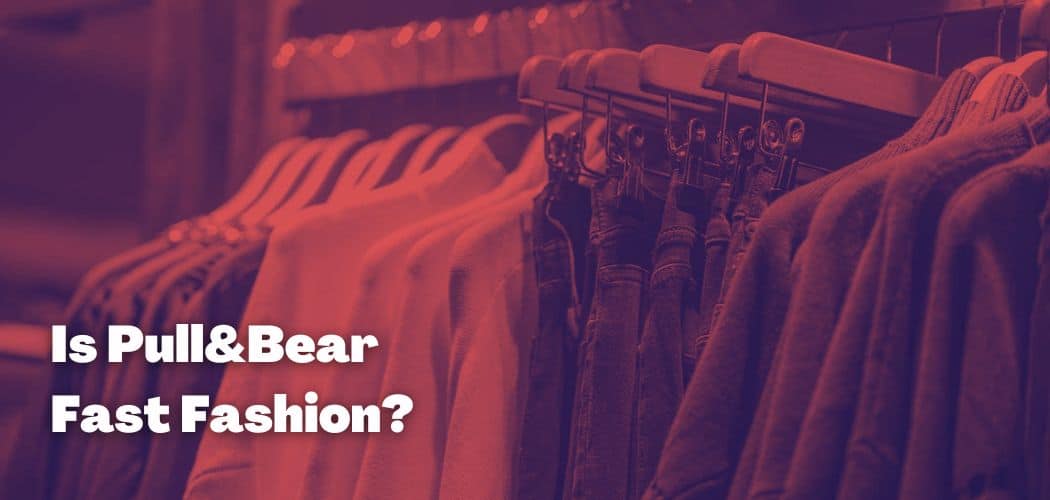Pull&Bear is a Spanish clothing brand similar to Zara. It was launched in 1991, and it has been more than 3 decades since the brand entered the market.
Pull&Bear has become a big multinational brand operating in more than 100 countries and 864 stores worldwide.
The brand generates revenue of almost 2 billion euros, which shows the demand for this brand in the global market.
Therefore the brand officials always maintain the quality of products and never compromise on the shortage of product supply.
Thus the products are manufactured on a mass level in advance.
However, mass production helps brands like Pull&Bear sell products to the global market with an unending supply of products at the back.
Therefore mass-producing brands are fast fashion brands, and Pull&Bear is also a fast-fashion brand.
Is Pull&Bear responsible for Mass production?
Pull&Bear is likely to be responsible for mass production. The apparent reason behind this practice is the high demand for products.
Most of the big brands are responsible for mass production. Such brands want to have the products in bulk. It doesn’t matter how high the demand is. They will never run out of stock.

However, Mass production seems to be a good thing or progressive but gradually destroys our environment.
It causes environmental pollution to a great extent. The gases released as the by-products of this production are toxic to ecological health.
On the other hand, the liquid wastes of the clothing industry also pollute the water massively.
What are the consequences of Mass production?
The consequences of mass production are very drastic. When the clothes and garments are produced in large quantities, toxic gases and liquids are released.
As there is no quality check on the industrial waste, these gases and liquids are directly drained into the air and water, due to which the lives of numerous species are being endangered.
However, this mass production doesn’t seem to be stopping anytime soon. Instead, it will get going and keep the ecosystem polluting.
At present, 8% to 10% of carbon dioxide comes from the clothing industry, which has polluted the air heavily.
Meanwhile, more than 50% of the freshwater has already been polluted by this industry.
Besides Pollution, the other offensive consequences of mass production are the exploitation of laborers, violation of human rights, unfair wages, and child labor.
What materials are used in cloth manufacture?
Synthetic materials are used in the manufacture of modern garments. However, synthetic materials are obtained from fossil fuels like petroleum and crude oil.
Nylon, polyester, ethylene, and propylene are the most common synthetic materials used to manufacture clothes and apparel.

Synthetic materials are heavily responsible for polluting the air like most fossil fuels do when burnt.
When the clothes are manufactured from synthetic materials, carbon dioxide and other toxic gases are released into the atmosphere.
Beside synthetic fabrics, Cotton, leather, wool, and bast fibers are used to manufacture clothes.
Who makes the Pull&Bear clothes?
Most international brands get their products from Asian and African countries because the production costs are meager there.
On the contrary, Pull&Bear manufactures 50% of its clothes in Spain. The rest of the garments are manufactured in Portugal, Morocco, and Turkey.
Spain and Portugal have developed States. Therefore the labor will not be cheap there. Morocco and Turkey may have set low wages for the laborers.
However, Pull&Bear is different from other multinational brands. It doesn’t get all its products from Asian countries like China and India.
Is Pull&Bear running Sweatshops?
None of the factories of this brand are present in 3rd world countries where the laborers are exploited for just meager wages.
The factories of this brand are in Spain, Portugal, and Turkey. All of the mentioned countries are supposed to have strong labor laws.

However, it seems challenging for Pull&Bear to run Sweatshops in such countries.
If Pull&Bear somehow has any manufacturing plants in developing countries like India and Bangladesh, it’s possible to run sweatshops because labor laws are not very effective in emerging countries.
Is Pull&Bear ethical?
Because the clothing industry is polluting the environment on a large scale, Pull&Bear is not ethical, but this brand is a bit ethical for labor exploitation.
Almost every brand is involved in unethical activities.
Some are responsible for animal killing, some are responsible for environmental pollution, and some are responsible for mass exploitation.
Therefore Pull&Bear is likely to be involved in unethical practices as this brand is responsible for mass production, which causes environmental pollution and makes numerous species suffer.
What are some better alternatives to Pull&Bear?
Pull&Bear is one of the biggest clothing brands, but it doesn’t mean that this brand is also the most ethical.
Pull&Bear, like other international brands, is responsible for polluting the environment.

However, consumers nowadays seem to be less interested in such brands that are unethical. Eventually, consumers start looking for alternative ethical brands.
Finding an ethical brand is very rare. Still, we have done some deep research to extract a few ethical and eco-friendly brands, unlike Pull&Bear.
Here is the list of a few better alternatives to Pull&Bear

